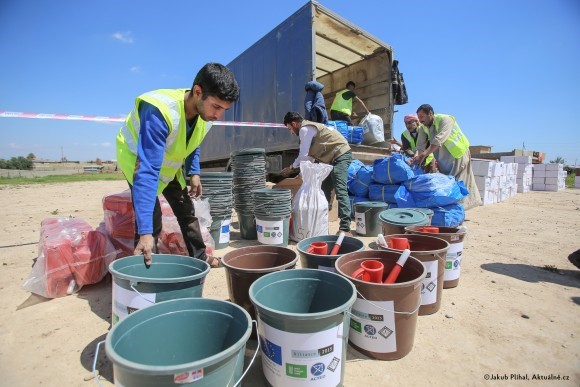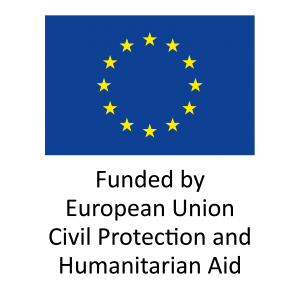
In the nearly 9 months following the beginning of military operations to retake the city of Mosul, 933,000 individuals have been displaced. On the 9th of July, the military campaign to retake Mosul was officially declared ended. 224,000 people were able to return home once the neighbourhood they were living in was retaken. Nevertheless, 709,000 Mosul residents remain displaced in the Mosul corridor in Ninewa governorate. Approximately 53% of the displaced live with host communities, while the remaining individuals live across 19 camps and emergency sites. Internally displaced people (IDPs), returnees and host communities in the city of Mosul and along the Mosul corridor face a wide variety of needs in multiple sectors. They lack food, water and other items to provide for their most basic needs. This only illustrates that the Mosul humanitarian crisis is far from over.
Two Alliance2015 members, consortium leader ACTED and People in Need (PIN), are implementing a project, with funding from the European Commission’s Civil Protection and Humanitarian Aid department (ECHO), to support 12,040 vulnerable residents in Mosul and Internally Displaced Persons (IDP) in the Mosul corridor. This follows from another Alliance2015 project, jointly implemented by ACTED, PIN and Welthungerhilfe (WHH), which supported approximately 94,414 East Mosul residents with water trucking. In addition, 3,774 households in East Mosul and Nimroud sub-district (Hamdanyia district) received 3,770 basic, hygiene and water storage kits and 1,322 baby kits, and 1,264 households received winterized support (heaters and kerosene). Lastly, 9,887 IDPs residing in Salamiyah camp 1 benefitted from improved access to water in the camp thanks to the construction of a water distribution line and seven elevated tanks. This project had also an education in emergencies component: 2,450 children were reached with psychosocial support, including recreational activities, and schools were supported with scholastic materials.
This project is innovative as ACTED and PIN will be among the first humanitarian organisations in country to implement multi-purpose cash assistance in West Mosul, which will enable vulnerable families living there to meet their basic needs. In addition to this, the project includes two other components: the distribution of non-food items (NFIs), including basic NFI, hygiene, water storage and baby kits, and the support to vulnerable children and youth with an integrated child protection and education intervention. Boys and girls aged 5 to 17 who have endured considerable distress as a consequence of a prolonged period of time spent under ISIL control, will receive specialized case management, psychosocial and educational support through their participation in a wide variety of recreational, and non-formal education activities.
For more information please click here.
This document covers humanitarian aid activities implemented with the financial assistance of the European Union. The views expressed herein should not be taken, in any way, to reflect the official opinion of the European Union, and the European Commission is not responsible for any use that may be made of the information it contains.
